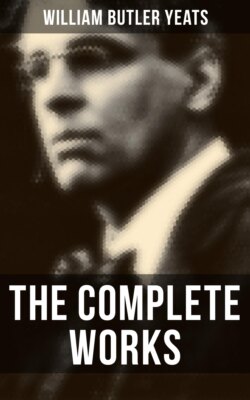Читать книгу The Complete Works - William Butler Yeats - Страница 147
На сайте Литреса книга снята с продажи.
APPENDIX II.
A different Version of Deirdre’s Entrance.
ОглавлениеTable of Contents
After the first performance of this play in the autumn of 1906, I rewrote the play up to the opening of the scene where Naisi and Deirdre play chess. The new version was played in the spring of 1907, and after that I rewrote from the entrance of Deirdre to her questioning the musicians, but felt, though despairing of setting it right, that it was still mere bones, mere dramatic logic. The principal difficulty with the form of dramatic structure I have adopted is that, unlike the loose Elizabethan form, it continually forces one by its rigour of logic away from one’s capacities, experiences, and desires, until, if one have not patience to wait for the mood, or to rewrite again and again till it comes, there is rhetoric and logic and dry circumstance where there should be life. After the version printed in the text of this book had gone to press, Mrs. Patrick Campbell came to our Abbey Theatre and, liking what she saw there, offered to come and play Deirdre among us next November, and this so stirred my imagination that the scene came right in a moment. It needs some changes in the stage directions at the beginning of the play. There is no longer need for loaf and flagon, but the women at the braziers should when the curtain rises be arraying themselves—the one holding a mirror for the other perhaps. The play then goes on unchanged till the entrance of Deirdre, when the following scene is substituted for that on pages 139–140. (Bodb is pronounced Bove.)
DEIRDRE, NAISI and FERGUS enter. DEIRDRE is carrying a little embroidered bag. She goes over towards the women.
DEIRDRE.
Silence your music, though I thank you for it;
But the wind’s blown upon my hair, and I
Must set the jewels on my neck and head
For one that’s coming.
NAISI.
Your colour has all gone
As ’twere with fear, and there’s no cause for that.
DEIRDRE.
These women have the raddle that they use
To make them brave and confident, although
Dread, toil or cold may chill the blood o’ their cheeks.
You’ll help me, women. It is my husband’s will
I show my trust in one that may be here
Before the mind can call the colour up.
My husband took these rubies from a king
Of Surracha that was so murderous
He seemed all glittering dragon. Now wearing them
Myself wars on myself, for I myself—
That do my husband’s will, yet fear to do it—
Grow dragonish to myself.
[The Women have gathered about her. NAISI has stood looking at her, but FERGUS leads him to the chess-table.
FERGUS.
We’ll play at chess
Till the king come. It is but natural
That she should fear him, for her house has been
The hole of the badger and the den of the fox.
NAISI.
If I were childish and had faith in omens
I’d rather not have lit on that old chessboard
At my homecoming.
FERGUS.
There’s a tale about it—
It has been lying there these many years—
Some wild old sorrowful tale.
NAISI.
It is the board
Where Lugaidh Redstripe and that wife of his
Who had a seamew’s body half the year
Played at the chess upon the night they died.
FERGUS.
I can remember now: a tale of treachery,
A broken promise and a journey’s end.
But it were best forgot.
[DEIRDRE has been standing with the women about her. They have been helping her to put on her jewels and to put the pigment on her cheeks and arrange her hair. She has gradually grown attentive to what FERGUS is saying.
NAISI.
If the tale’s true—
When it was plain that they had been betrayed,
They moved the men and waited for the end
As it were bedtime, and had so quiet minds
They hardly winked their eyes when the sword flashed.
FERGUS.
She never could have played so, being a woman,
If she had not the cold sea’s blood in her.
DEIRDRE.
I have heard the ever-living warn mankind
By changing clouds and casual accidents
Or what seem so.
NAISI.
Stood th’ ever-living there,
Old Lir and Aengus from his glassy tower,
And that hill-haunting Bodb to warn us hence—
Our honour is so knitted up with staying,
King Conchubar’s word and Fergus’ word being pledged,
I’d brave them out and stay.
DEIRDRE.
No welcomer,
And a bare house upon the journey’s end!
Is that the way a king that means no wrong
Honours a guest?
FERGUS.
He is but making ready
A welcome in his house, arranging where
The moorhen and the mallard go, and where
The speckled heath-cock in a golden dish.
DEIRDRE.
Has he no messenger—
[Etc., etc.]
The play then goes on unchanged, except that on page 151, instead of the short speech of Deirdre, beginning ‘Safety and peace,’ one should read
‘Safety and peace!
I had them when a child, but from that hour
I have found life obscure and violent,
And think that I shall find it so for ever.’
